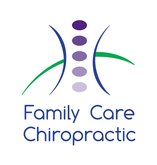|
A few weeks ago I had the privilege to attend a Functional Health Team Meeting and learn about music therapy. Chris Helmick is a Music Therapist. He's worked for Giant Steps School for Autism and is currently at Maryville's University working with Alzheimer's patients. Music therapy can be utilized in many areas of wellness for the benefit of those recovering in medical facilities, students learning in school, individuals in assisted living and hospice, and for those undergoing behavior, occupational and physical therapy.
I first learned about music therapy at Logan University while studying concussion injury and recovery. Music therapy can be used as an adjunct to help those recover, to improve brain healing, and to decrease stress. We knew that the rhythm of music and the type of music (classical vs. pop or metal) could facilitate learning. That's really as far as we got though. Chris taught us about two principles of music therapy Entrainment and Iso.
Qualities of music can also have an effect. For instance Pitch can raise a person's energy or can be grounding. A high pitch usually increases activity, whereas a low pitch can relax and slow activity. Rhythm can also have an effect on energy, being fast and having a beat vs. slow or without a beat. Repetition of music can be used to learn a routine that one unconsciously follows and layering be used to incorporate sounds and voice. My previous experience with music therapy had been with Maura Markister, a music therapist and doula who specializes in using music therapy for pregnancy, birthing and post-natal bonding with baby. Maura's own experience with music to assist with her births were very powerful and lead her to develop St. Louis Birth Rhythms to aid other expecting moms in their journey. Music therapy during birth can help with labor pain and stress, ease and calm mom and baby, aid in the progression of the birth, and help with nursing. You can learn more about St. Louis Birth Rhythms and their holistic approach on their website or Facebook page. Music can certainly have profound effects on our life and our journey to wellness. Even neuroscience says listening to this song reduces anxiety by up to 65%. Listen for yourself and let us know how you feel. Comments are closed.
|
Location |
HoursMonday: 9 am - 12 pm & 2 pm - 6 pm
Tuesday: By Appointment Only Wednesday: 9 am - 12 pm & 2 pm - 6 pm Thursday: 9 am - 12 pm & 2 pm - 6 pm Friday: 9 am - 12 pm & 2 pm - 6 pm Saturday and Sunday: Closed |
|

